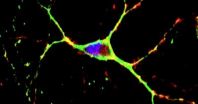(Press-News.org) WASHINGTON – Compared to a survey conducted nearly 20 years ago, about twice the proportion of addiction counselors now find it acceptable for at least some of their patients to have a drink occasionally – either as an intermediate goal or as their final treatment goal, according to a new study published by the American Psychological Association.
The researchers surveyed 913 members of the National Association of Alcoholism and Drug Addiction Counselors from across the United States. About 50 percent of the respondents said it would be acceptable if some of their clients who abused alcohol wanted to limit their drinking but not totally give up alcohol. In the earlier survey published in 1994, about 25 percent of the responding administrators of substance abuse treatment agencies found moderate drinking acceptable for some of their clients.
When asked about treating clients who abuse drugs, about half the counselors in the new study accepted moderate drug use as an intermediate goal and one-third as a final goal – this is about the same as it was in a similar survey 10 years ago.
"Individuals with alcohol and drug problems who avoid treatment because they are ambivalent about abstinence should know that — depending on the severity of their condition, the finality of their outcome goal, and their drug of choice — their interest in moderating their consumption will be acceptable to many addiction professionals working in outpatient and independent practice settings," wrote study co-authors Alan K. Davis, MA, and Harold Rosenberg, PhD, both with the Department of Psychology at Bowling Green State University. The study was published online in the APA journal Psychology of Addictive Behaviors.
However, for clients diagnosed with alcohol or drug dependence – which is considered more severe than alcohol or drug abuse – respondents to the new survey were less accepting of clients aiming for limited or moderate substance use. Specifically, at least three-quarters of respondents said they would not approve of limited or moderate consumption for clients with alcohol or drug dependence, as either an intermediate or final goal.
Substance abuse often results in relationship, work or legal problems, such as driving under the influence. Substance dependent people have many of the same problems, but they also experience markedly increased tolerance, withdrawal symptoms and a sense of compulsion or loss of control over their substance use, according to the Diagnostic and Statistical Manual of Mental Disorders, the standard classification of mental disorders used by mental health professionals in the United States.
When respondents were asked why they rejected any consumption at all by their clients, many said it would send the wrong message, is not effective and is not consistent with their treatment philosophy. When asked what other client characteristics they thought were important to evaluate when clients wanted to limit or moderate their substance use, respondents rated a patient's health, age, emotional stability and "drug of choice" as important.
The study also found that limited or moderate substance use appears less acceptable to counselors in the United States than in several other countries. For example, a nationwide survey of British alcohol and drug treatment agencies found 86 percent considered continued use acceptable as an intermediate goal and 81 percent found it acceptable as a final goal for clients with a history of alcohol abuse. In that same survey, 68 percent accepted continued use as an intermediate goal and 50 percent as a final goal for clients with alcohol dependence. In addition, a recent survey of Swiss alcohol treatment agencies also found that respondents rated limited or moderate drinking as more acceptable for clients with alcohol abuse and dependence than did the American addiction counselors.
All the U.S. survey respondents were NAADAC members, and their views about the acceptability of limited or moderate substance use by clients may differ from therapists who are not members of the organization, the authors noted. Also, previous studies of counselors' views of outcome goals were usually based on responses from administrators of substance abuse treatment facilities rather than individual counselors.
"Our study did not examine whether those who want to moderate their drinking or drug use had better or worse outcomes than those who attempt to abstain immediately and completely, and research has found that episodes of lapse and relapse are common among clients no matter what outcome goal they pursue. In light of this study, we suggest that clients ask about their counselor's openness to limited or moderate consumption as an outcome goal, and that agencies acknowledge their policy regarding negotiation of outcome goals as part of informed consent," Rosenberg said.
###
Article: "Acceptance of Non-abstinence Goals by Addiction Professionals in the United States," Alan K. Davis, MA, and Harold Rosenberg, PhD, Bowling Green State University, Psychology of Addictive Behaviors, online first Oct. 22.
Full text of the article is available from the APA Public Affairs Office and at
http://www.apa.org/pubs/journals/releases/adb-ofp-davis.pdf
Contact: Harold Rosenberg at (419) 372-7255, hrosenb@bgsu.edu
The American Psychological Association, in Washington, D.C., is the largest scientific and professional organization representing psychology in the United States and is the world's largest association of psychologists. APA's membership includes more than 137,000 researchers, educators, clinicians, consultants and students. Through its divisions in 54 subfields of psychology and affiliations with 60 state, territorial and Canadian provincial associations, APA works to advance the creation, communication and application of psychological knowledge to benefit society and improve people's lives.
Study: Alcohol, drug abuse counselors don't always require total abstinence
Most therapists still require abstinence for clients with substance dependence
2012-11-02
ELSE PRESS RELEASES FROM THIS DATE:
Difficult-to-read font reduces political polarity, study finds
2012-11-02
CHAMPAIGN, lll. — Liberals and conservatives who are polarized on certain politically charged subjects become more moderate when reading political arguments in a difficult-to-read font, researchers report in a new study. Likewise, people with induced bias for or against a defendant in a mock trial are less likely to act on that bias if they have to struggle to read the evidence against him.
The new research, reported in the Journal of Experimental Social Psychology, is one of two studies to show that subtle manipulations that affect how people take in information can ...
Abstract thinking can make you more politically moderate
2012-11-02
CHAMPAIGN, lll. — Partisans beware! Some of your most cherished political attitudes may be malleable! Researchers report that simply answering three "why" questions on an innocuous topic leads people to be more moderate in their views on an otherwise polarizing political issue.
The research, described in the journal Social Psychological and Personality Science, explored attitudes toward what some people refer to as the ground zero mosque, an Islamic community center and mosque built two blocks from the site of the former World Trade Center in New York City. When the Islamic ...
Researchers 'watch' antibiotics attack tuberculosis bacteria inside cells
2012-11-02
NEW YORK (Nov. 1, 2012) -- Weill Cornell Medical College researchers report that mass spectrometry, a tool currently used to detect and measure proteins and lipids, can also now allow biologists to "see" for the first time exactly how drugs work inside living cells to kill infectious microbes. As a result, scientists may be able to improve existing antibiotics and design new, smarter ones to fight deadly infections, such as tuberculosis. The new study was published in today's early online edition of Science.
"The development of antibiotics has been stalled for several ...
Why seas are rising ahead of predictions
2012-11-02
Boulder, CO, USA – Sea levels are rising faster than expected from global warming, and University of Colorado geologist Bill Hay has a good idea why. The last official IPCC report in 2007 projected a global sea level rise between 0.2 and 0.5 meters by the year 2100. But current sea-level rise measurements meet or exceed the high end of that range and suggest a rise of one meter or more by the end of the century.
"What's missing from the models used to forecast sea-level rise are critical feedbacks that speed everything up," says Hay. He will be presenting some of these ...
Bird tree tells new tale of evolution
2012-11-02
Contact:
Arne Mooers, 778.782.3979, amooers@sfu.ca
Carol Thorbes, PAMR, 778.782.3035, cthorbes@sfu.ca END ...
Berkeley Lab scientists help develop promising therapy for Huntington's disease
2012-11-02
There's new hope in the fight against Huntington's disease. A group of researchers that includes scientists from the U.S. Department of Energy's Lawrence Berkeley National Laboratory (Berkeley Lab) have designed a compound that suppresses symptoms of the devastating disease in mice.
The compound is a synthetic antioxidant that targets mitochondria, an organelle within cells that serves as a cell's power plant. Oxidative damage to mitochondria is implicated in many neurodegenerative diseases including Alzheimer's, Parkinson's, and Huntington's.
The scientists administered ...
The ins and outs of in-groups and out-groups
2012-11-02
We humans organize ourselves in myriad kinds of social groups, from scout troops and sports teams to networks of friends, colleagues, or classmates. But how do these social groups work? How do we decide whom to trust and whom to follow? And how do we deal with people that don't seem to fit the norms of our social groups?
New research published in Psychological Science, a journal of the Association for Psychological Science, explores these issues by examining various facets of social perception and behavior.
The Herding Hormone: Oxytocin Stimulates In-Group Conformity
Mirre ...
Bigger human genome pool uncovers rarer variants
2012-11-02
Contact:
Iman Hajirasouliha, 778.782.7040, 604.418.4834 (cell), imanh@sfu.ca
Carol Thorbes, PAMR, 778.782.3035, cthorbes@sfu.ca
Flickr: http://at.sfu.ca/skirFz END ...
UC Davis scientists identify new target for lung cancer treatment
2012-11-02
(SACRAMENTO, Calif.) — A team of UC Davis investigators has discovered a protein on the surface of lung cancer cells that could prove to be an important new target for anti-cancer therapy. A series of experiments in mice with lung cancer showed that specific targeting of the protein with monoclonal antibodies reduced the size of tumors, lowered the occurrence of metastases and substantially lengthened survival time. The findings will be published in the November issue of Cancer Research.
"Lung cancer continues to be one of the biggest killers in the United States, and ...
How the negative trumps the positive in politics
2012-11-02
Negatively framed political attitudes ("I don't like Obama") are stronger than positively framed attitudes ("I like Romney"), and this effect is strengthened when people think more deeply about the issues involved.
That is the finding of a paper published in the latest issue of the British Journal of Social Psychology by George Bizer, a psychology professor at Union College in Schenectady, N.Y.
Bizer and his co-authors Iris Žeželj (University of Belgrade) and Jamie Luguri (Yale University) presented participants with information about two fictional (though ostensibly ...
LAST 30 PRESS RELEASES:
Scientists discover why we know when to stop scratching an itch
A hidden reason inner ear cells die – and what it means for preventing hearing loss
Researchers discover how tuberculosis bacteria use a “stealth” mechanism to evade the immune system
New microscopy technique lets scientists see cells in unprecedented detail and color
Sometimes less is more: Scientists rethink how to pack medicine into tiny delivery capsules
Scientists build low-cost microscope to study living cells in zero gravity
The Biophysical Journal names Denis V. Titov the 2025 Paper of the Year-Early Career Investigator awardee
Scientists show how your body senses cold—and why menthol feels cool
Scientists deliver new molecule for getting DNA into cells
Study reveals insights about brain regions linked to OCD, informing potential treatments
Does ocean saltiness influence El Niño?
2026 Young Investigators: ONR celebrates new talent tackling warfighter challenges
Genetics help explain who gets the ‘telltale tingle’ from music, art and literature
Many Americans misunderstand medical aid in dying laws
Researchers publish landmark infectious disease study in ‘Science’
New NSF award supports innovative role-playing game approach to strengthening research security in academia
Kumar named to ACMA Emerging Leaders Program for 2026
AI language models could transform aquatic environmental risk assessment
New isotope tools reveal hidden pathways reshaping the global nitrogen cycle
Study reveals how antibiotic structure controls removal from water using biochar
Why chronic pain lasts longer in women: Immune cells offer clues
Toxic exposure creates epigenetic disease risk over 20 generations
More time spent on social media linked to steroid use intentions among boys and men
New study suggests a “kick it while it’s down” approach to cancer treatment could improve cure rates
Milken Institute, Ann Theodore Foundation launch new grant to support clinical trial for potential sarcoidosis treatment
New strategies boost effectiveness of CAR-NK therapy against cancer
Study: Adolescent cannabis use linked to doubling risk of psychotic and bipolar disorders
Invisible harms: drug-related deaths spike after hurricanes and tropical storms
Adolescent cannabis use and risk of psychotic, bipolar, depressive, and anxiety disorders
Anxiety, depression, and care barriers in adults with intellectual and developmental disabilities
[Press-News.org] Study: Alcohol, drug abuse counselors don't always require total abstinenceMost therapists still require abstinence for clients with substance dependence



